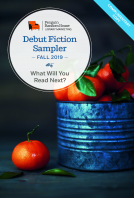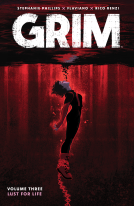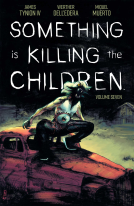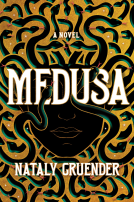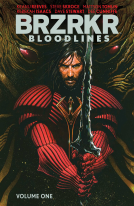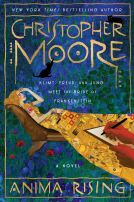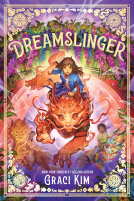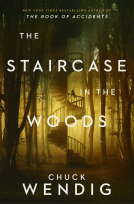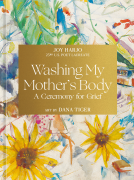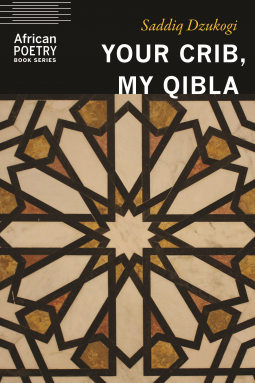
Your Crib, My Qibla
by Saddiq Dzukogi
This title was previously available on NetGalley and is now archived.
Send NetGalley books directly to your Kindle or Kindle app
1
To read on a Kindle or Kindle app, please add kindle@netgalley.com as an approved email address to receive files in your Amazon account. Click here for step-by-step instructions.
2
Also find your Kindle email address within your Amazon account, and enter it here.
Pub Date Mar 01 2021 | Archive Date Mar 31 2021
Talking about this book? Use #YourCribMyQibla #NetGalley. More hashtag tips!
Description
Julie Suk Award Winner
Nigeria Prize for Literature shortlist
Your Crib, My Qibla interrogates loss, the death of a child, and a father’s pursuit of language able to articulate grief. In these poems, the language of memory functions as a space of mourning, connecting the dead with the world of the living. Culminating in an imagined dialogue between the father and his deceased daughter in the intricate space of the family, Your Crib, My Qibla explores grief, the fleeting nature of healing, and the constant obsession of memory as a language to reach the dead.
Available Editions
| EDITION | Other Format |
| ISBN | 9781496225771 |
| PRICE | $17.95 (USD) |
| PAGES | 96 |
Featured Reviews
Addiq Dzukogi wraps language, experience, and culture in powerful verses. Your Crib, My Qibla is a text worth considering by its literary merit and by the perspective it brings through poetic talent.
This collection of poems is written for the poet’s daughter who died just a few days after her first birthday and to be honest I wasn’t prepared for how heart wrenching these would be. I have always found poems to be quite personal so I rarely ever pass judgment of poetry because I think it’s the one type of writing written for oneself instead of the consumption of others and we are privileged to read them
These poems did not disappoint. The writing is vivid even for poetry, the words flow and drip with a grief so thick I felt a part of their loss I had to consume these poem with breaks because of how heartbreaking they were. The writing is complex yet there is an underlying gentility that comes from the heavy theme of the poems. There are beautiful lines that leave you empty and full at the same time:<b>“His palm is refusing to grow in his heart; the pigeons no longer come to his windowpane, just bats and dead butterflies.”...</b>
I cannot pinpoint why the poet used third person narration for himself but it did not take away from the poetry it’s just curiosity.
This collection was heart wrenching and intimate and I am glad the author chose to share the collection with the world
My favorite poems were; a nimble darkness, internment,palms, the gown and this web.
Thank you Netgalley for the arc.
Absolutely beautiful and heartbreaking. This poetry book felt very intimate and emotional and I’m glad I got the chance to read it.
 Kevin B, Reviewer
Kevin B, Reviewer
Your Crib, My Qibla
Saddiq Dzukogi
Coming out in 2021, @Saddiqdzukogi book, #YourCribMyQibla is an astounding and gut-wrenching read, deepening my continued appreciation by poems from African and African diaspora authors. I am thankful to @Netgalley for these finds which I likely wouldn't have found on my own. I will be doing myself a favor and seeking out the chapbooks and authors put out by the African Poetry Book Fund, edited by Kwame Dawes.
Your Crib, My Qibla is an homage to the experience of losing a young child. So beautifully written, yet my stomach turned with each poem. The lines capture the shortness and the unrealized dreams he had with his daughter. Dzokogi writes:
"It bites him hard that your life happened / like an hourglass with only a handful of sand"
As a father, Dzokogi wrote the impacts of every one of my fears realized, and his grief is a dark land I never wish to go. Prayer becomes ashy. Lines like:
"His psalm is refusing to grow in his heart. The pigeons no longer come to the windowpane, just bats and dead butterflies."
What strikes me most is how he writes of his son's processing of losing his sister. Searching for the girl and wondering about her return. The rock of which the mother was for him, despite seeing her own breasts stockpiled with milk for a girl no longer suckling. He rounds out the dimension of loss and goes beyond himself, even in the deep shatter that he writes from.
The chapbook, naturally, is a short one. It goes by too fast, but drags you through the pain in such a way that I had to put it down multiple times. Once I almost sobbed in the middle of a cafe. I long to reread it, but tremble to do it too soon. My prayer is still light, but Dzokogi shows me the quickness with which it may become burial dirt in my mouth.
I look forward to finding everything I can by Saddiq Dzokogi and imagine his work will quickly become a favorite. I am not African or African diaspora, so many of his words can never translate to my own, but his courage is instructive and makes me unafraid to write the depths of pain and depths of joy.
#poetry #poems #bookreview
 Reviewer 678198
Reviewer 678198
Many thanks to Netgalley and University of Nebraska Press for providing me with this ARC in exchange for an honest review.
I honestly didn't think I would spend 2 weeks reading this book, I kept stalling, each poem was pregnant with so much sorrow and grief to the highest, purest extent. An extent I knew I'm not a stable enough vessel to carry. I could not read more than 5 poems before rendering myself useless for that entire day. some days I just stopped reading. I'm an empath and I actually thought I would be more susceptible to the grief bleeding from these poems, but I know now it was not just my ability to feel or more like overfeel, but was the amount of emotions these poems are packed with.
These poems were so beautiful yet so painful. No wonder the author decided to write them as a 3rd person, I understand writing about trauma and how we separate ourselves from the most painful situations by being another person writing our own stories.
I don't know if this is appropriate but I send my condolences to you Saddiq Dzukogi.
 tariq s, Educator
tariq s, Educator
a brave and intensely felt collection of poems exploring the nature of grief from the perspective of a father who has lost his daughter.
I received an eARC copy in exchange for an honest review from the University of Nebraska Press via NetGalley.
Have you ever felt so hurt that your whole body and mind suffer? Have you ever bruised so much that all your insides feel like they weigh a ton? Have you ever felt such a loss that your soul, your whole inner core cannot breathe, speak, live? These feelings are what Your Crib, My Qibla brings. These feelings are what this poetry collection carries, so deep and profound that the reader stays breathless, speechless, and in tears.
Your Crib, My Qibla is an experience of loss and suffering. A hard suffering one only feels when the beloved one is lost. And in my mind, the biggest loss one can ever experience in life is a loss of a child. My stomach was twisting and turning with each poem I read, with each line, each word. I felt a big lump in my throat and tears coming down my cheeks seeing (and feeling) so much pain, sadness, and grief in these poems. These words are so beautifully worded and painful; it must have been tremendous labour to give birth to such expressive stories and emotions while experiencing such excruciating situation (I can only imagine it).
The second part of the collection, in my opinion, bears deeper feelings and thoughts, as we get to see the imaginary conversation and exchange of impressions between the father and his lost girl.
I will share the poem that made me feel like a speck of dust in the wind:
The Breadth of a Butterfly
On Friday, her mother called to say Baha is ill.
Saturday, he was back in Minna, where
hospitals are places of hostilities. Hours before the doctor
came, nurses with their swollen eyes
looked for Baha's collapsed veins,
her eyes like light bulbs right after a power-cut
flicker back into darkness.
She is pale, her mother said. No madam she is not,
let us do our job.
But their job is to fail at doing their jobs.
Seated on a wooden bench in the waiting hall,
crammed with smell of blood and iodine
aging inside dumpsters, he recites all the prayers
his mother put into his mouth as a child. The cannula
after hours of looking for her veins
now hangs loosely on the side of her brow.
In his hands he transported her from lab to lab
for blood tests, until finally in a ward
they were given a bed. As her cry grew alongside the discomfort
in her body. His worries flock
in the air as he listens, wishing the pain was a pill
he could swallow on her behalf. His butterfly-
child is still colorful but unable to fly.
Because he doesn't like to drown in regrets, he pictures the flower
her mother planted into her hair.
One more painful portion:
If silence were a language prancing
out of a shadow's mouth, what will be heard
in your muffled prayers, anointed
with a thing of your ire, I know you often blame yourself,
but death wasn't in your breast milk
nor inside anything you fed me.
You wonder if God hears your voice,
Ummi, I hear you.
My heart, my prayers, and my condolences to the Dzukogi family.
 Israa M, Educator
Israa M, Educator
Thank you NetGalley for an advanced copy of this book. It is so heartbreaking. I love the word choice and different points of view. Muslims would connect with this book, as there are references specific to Islam. Yet, any poem can be selected to be read alone without losing any emotion. This collection of poems is powerful, and those struggling with the lost of a child will be able to connect.
Like Dzukogi, when I experienced a traumatic bereavement (nothing compared to the loss of his daughter, but half my family died in an 8 month period) I found that only writing kept me afloat. Dzukogi's poetry is absolutely beautiful and raw in the best way. This isn't the kind of book you can read all at once; it just hurts too much. His pain is palpable in every word. That said, it's a book that SHOULD be read, not just because it's so evocative, but because it shows the healing power of language, connection and poetry, and above all it's a wonderful tribute to his daughter.
 Reviewer 756466
Reviewer 756466
Really appreciated this melancholy but lovely tribute and reflection on loss. Faith and poetry can often give us a way to navigate grief, and this book was a reminder to not turn away from hard feelings, but rather, look at them squarely in order to face them.

